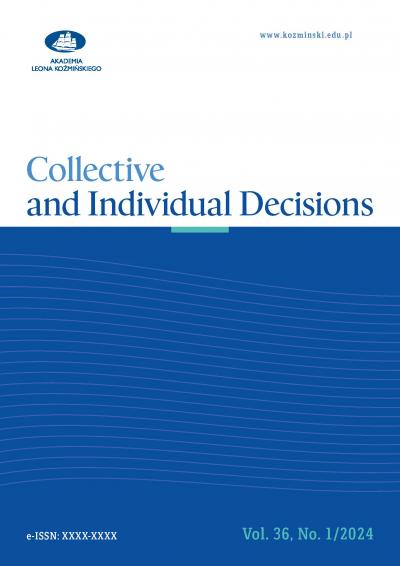Probabilistyczne metody podziału zbioru dóbr niepodzielnych
Marek Bożykowski
Uniwersytet Warszawski
06/2016 (26) Decyzje
DOI 10.7206/DEC.1733-0092.78








